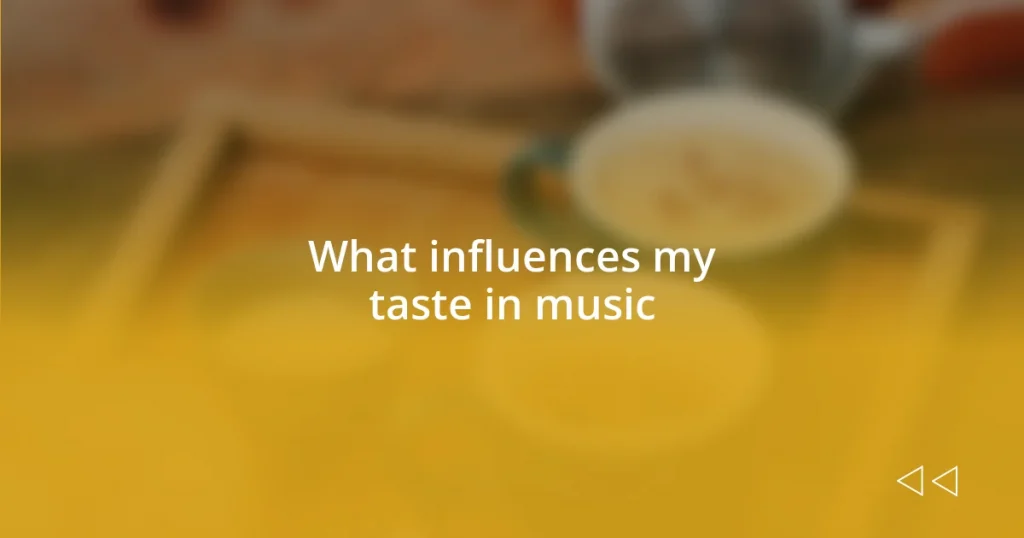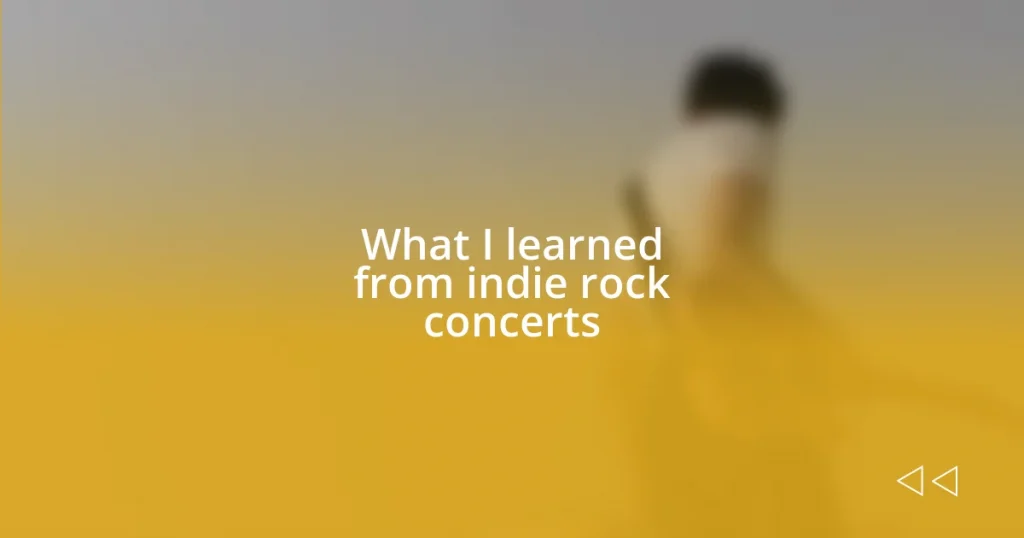Key takeaways:
- Personal experiences and memories significantly shape music taste, with specific songs evoking nostalgia and emotional connections.
- Cultural background and social environment influence preferences, as exposure to diverse musical traditions and peer recommendations expand one’s auditory palette.
- Cognitive processing of music, including familiarity and emotional response, plays a key role in determining long-term musical preferences and identity expression through genre exploration.
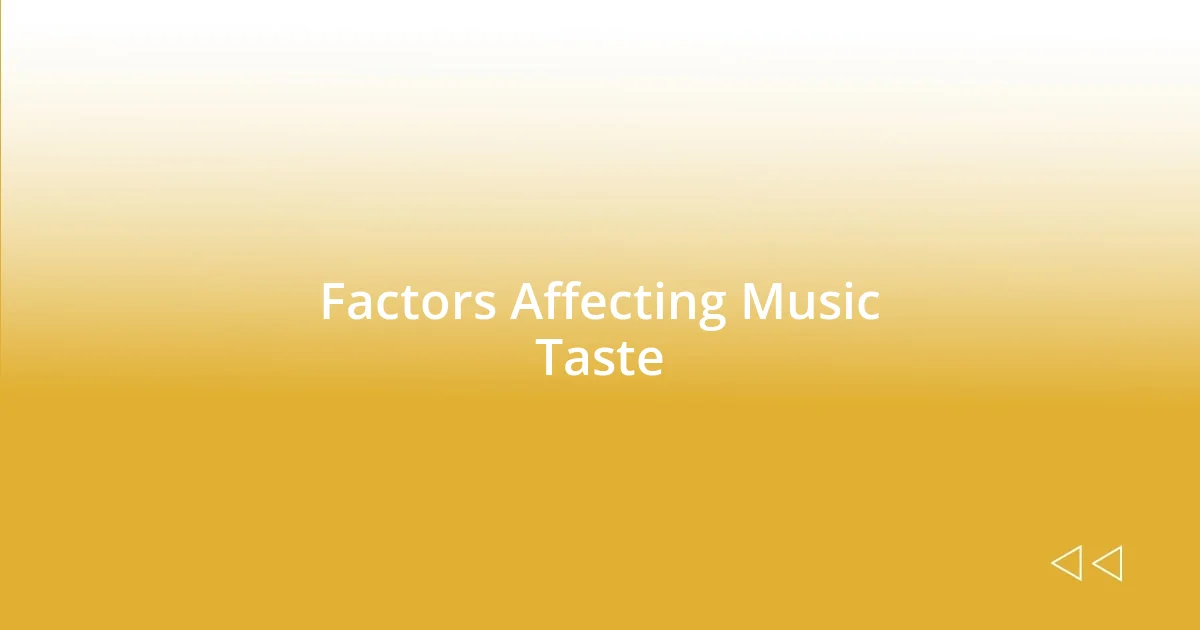
Factors Affecting Music Taste
Music taste is profoundly shaped by personal experiences and emotional connections. I remember the first time I heard Nirvana’s “Smells Like Teen Spirit.” It wasn’t just the catchy riff that caught my attention; it was the raw emotion and energy that resonated with my teenage angst. How many of us have songs that remind us of certain moments in our lives, triggering nostalgia or even joy?
Cultural background also plays a significant role in shaping our musical preferences. Growing up in a household where salsa and merengue were staples, I developed an innate love for rhythmic beats and vibrant melodies. It’s fascinating how our surroundings, from family traditions to local music scenes, can subtly influence what we enjoy. What about you? Have you ever noticed how your environment or heritage colors your musical choices?
Lastly, peer influence cannot be underestimated. I often find myself diving into new genres because of friends’ recommendations or shared playlists. It’s like a delightful game of musical discovery; one song leads to another, expanding my horizons. How much of your playlist is shaped by your friends’ tastes? It’s incredible to realize that our social circles can introduce us to sounds we might never explore on our own.
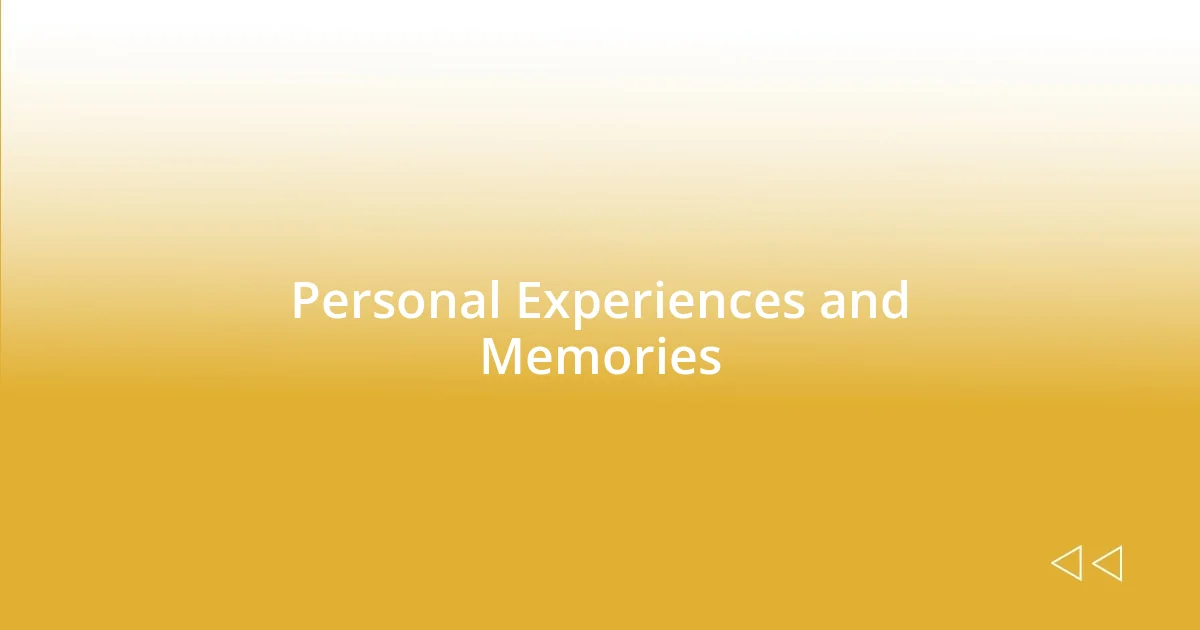
Personal Experiences and Memories
Personal experiences often become the soundtrack of our lives. I can still vividly recall singing along to the Carpenters’ hits during long road trips with my family. Those simple moments, full of laughter and harmonies, crafted a deep sense of nostalgia for me. It’s intriguing how certain melodies can instantly transport us back to cherished times or particular feelings.
- Songs tied to specific moments often carry significant weight in our hearts.
- I remember my first love’s playlist—the songs we danced to now bring a smile and a bittersweet pang.
- Music often serves as a time capsule, preserving emotions from different chapters of our lives.
- Even a simple tune playing in a cafe can remind me of a rainy day spent with a good friend or a heartfelt conversation.
- Those memories are the threads that weave our unique musical preferences together, blending emotion with sound.
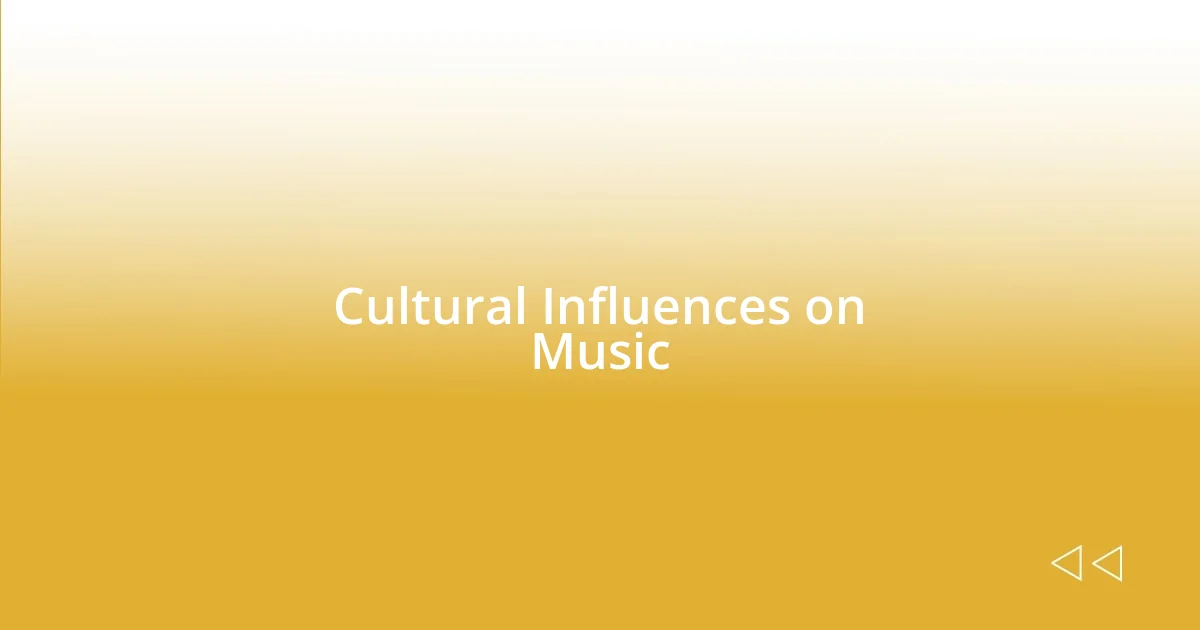
Cultural Influences on Music
Cultural influences shape our music preferences in ways that are often intertwined with personal identity. I remember the vibrant sounds of the Diwali festival in my neighborhood, where Bollywood hits resonated through the air, uniting families in celebration. Those melodies taught me to appreciate not just the music itself, but the community and culture behind each note. Have you experienced that powerful connection between music and the culture surrounding you?
The diverse musical landscapes across different cultures expand our auditory palette. For example, the intricate rhythms of African drumming have fascinated me since I was introduced to them in college. I can still recall those captivating dance workshops where every beat encouraged freedom of expression. It was a vivid reminder that music is more than just sound; it’s a communal experience that transcends borders. How does your cultural background shape your understanding of music?
Finally, traditions and local customs play a crucial role in molding our musical tastes. Growing up, I spent summers with my grandparents in a small town where folk music vibrated through the air on warm nights. Those evenings spent around a fire, listening to stories interwoven with melodies, ignited my passion for storytelling in song. It’s incredible how these cultural practices can create lasting memories and influence the music we cherish most.
| Cultural Influence | Personal Anecdote |
|---|---|
| Festival Sounds | The vibrant Bollywood hits during Diwali shaped my appreciation for community and culture. |
| Rhythms of Dance | Experiencing African drumming workshops expanded my understanding of music as a form of expression. |
| Folk Traditions | Summer nights with folk music around a fire fostered a deep connection to storytelling through song. |

Social Environment and Music Choices
There’s something magical about how our social circles influence the music we gravitate towards. I remember when I first entered high school, my friends introduced me to indie bands that suddenly filled my playlists. How does it feel to discover new genres through friends? For me, it was like opening a door to a whole new world, as each song offered a different flavor of experience.
The atmosphere of social gatherings often sets the stage for our musical preferences. I think back to the parties where upbeat pop tracks blared, encouraging us to dance like no one was watching. Those tunes not only fostered connection but also became the soundtrack of shared joy. Have you noticed how certain songs bring back memories of laughter and late-night conversations? It’s fascinating how these collective experiences weave our musical identities together.
Exploring music choices within our social communities reveals significant emotional bonds. I’ve often found that certain genres resonate with my friends’ personal stories—whether it’s the intense lyrics of emo rock or the contagious beats of hip-hop. I can’t help but wonder how those connections shape our preferences. In a way, it feels like every playlist curated by a friend is a glimpse into their world, making music a shared language that speaks to our collective experiences.
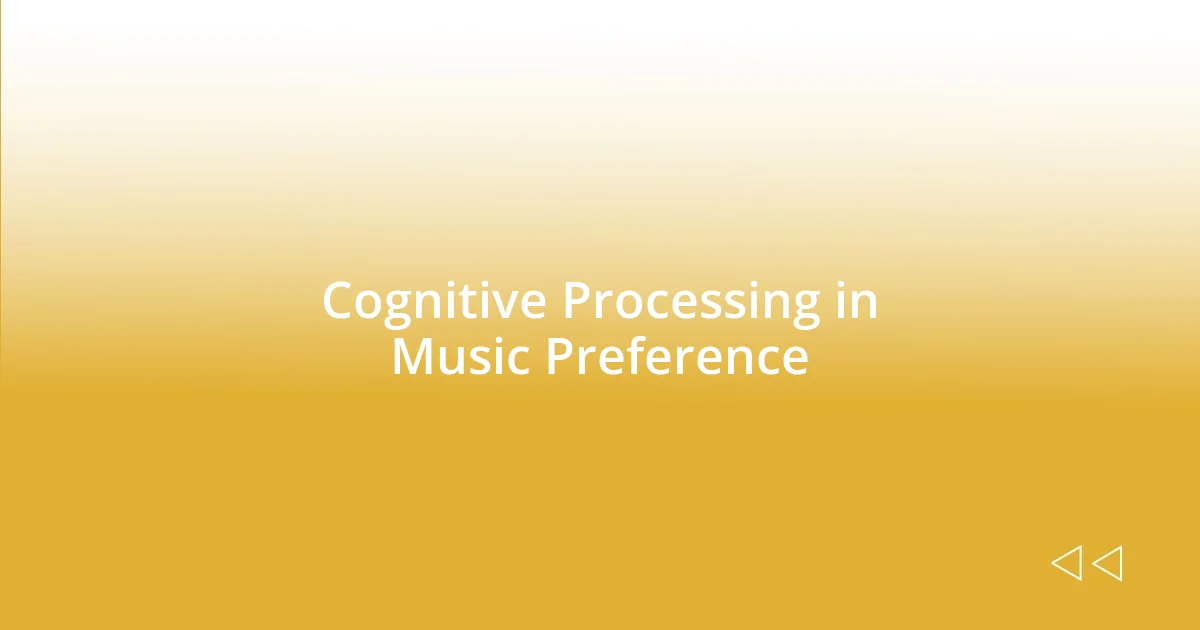
Cognitive Processing in Music Preference
The way we process music cognitively plays a significant role in shaping our preferences. For instance, when I listen to a complex piece of classical music, I often find myself dissecting the layers and analyzing the emotions conveyed through each movement. I wonder, have you ever caught yourself getting lost in the intricacies of a song and reflecting on its meaning? It’s a fascinating experience that deepens my appreciation for musical craftsmanship.
I also notice that familiarity influences how I perceive music. The first time I heard a particular song, maybe during a pivotal moment in my life, it became permanently etched in my memory. Each listen afterward evokes connections to that experience, making me crave the song even more. Isn’t it interesting how our emotional responses to music can become intertwined with our lived experiences, affecting our long-term preferences?
Additionally, the cognitive processing of melodies and harmonies can also stir nostalgic feelings. I vividly recall my high school days, where the sound of a specific guitar riff would make my heart race with excitement. Those catchy hooks create a psychological pathway in my mind, making me temporarily forget my worries. Do you find that certain melodies transport you back to specific moments in time? It’s like having a personal soundtrack that echoes throughout our lives, highlighting pivotal memories and emotions entwined with our musical journeys.
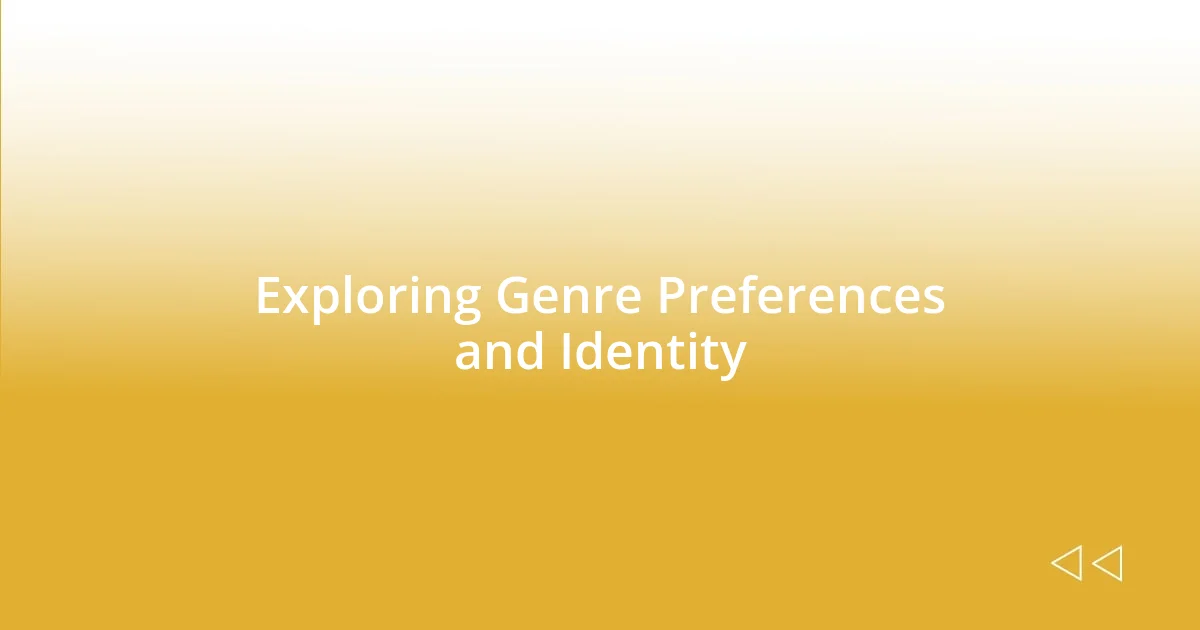
Exploring Genre Preferences and Identity
Exploring different music genres often reflects a deeper part of our identity and experiences. I remember the first time I delved into jazz; I was captivated by its improvisational freedom. It felt like stepping into a vibrant tapestry of creativity. Have you experienced that moment when a genre suddenly resonates with your core? It’s as if the music mirrors your emotions, revealing sides of you that you didn’t even know existed.
My affinity for certain genres also connects to life experiences and personal growth. When I was navigating the ups and downs of a tough breakup, I found solace in the raw authenticity of singer-songwriter tracks. Each heartfelt lyric seemed to echo my own struggles, making me feel understood in my solitude. Do you find comfort in music during life’s challenging moments? I’ve often thought that our evolving music tastes are intertwined with our journeys, turning melodies into companions that accompany us through different stages of life.
Exploring genre preferences offers a glimpse into who we are at our core. I’ve observed how my love for alternative rock not only stems from the powerful lyrics but also from the rebellious spirit that resonates with my own quest for individuality. Isn’t it fascinating how the music we gravitate towards can reveal so much about our values and beliefs? Each genre provides a unique lens through which we view the world, shaping our identities in profound ways.










